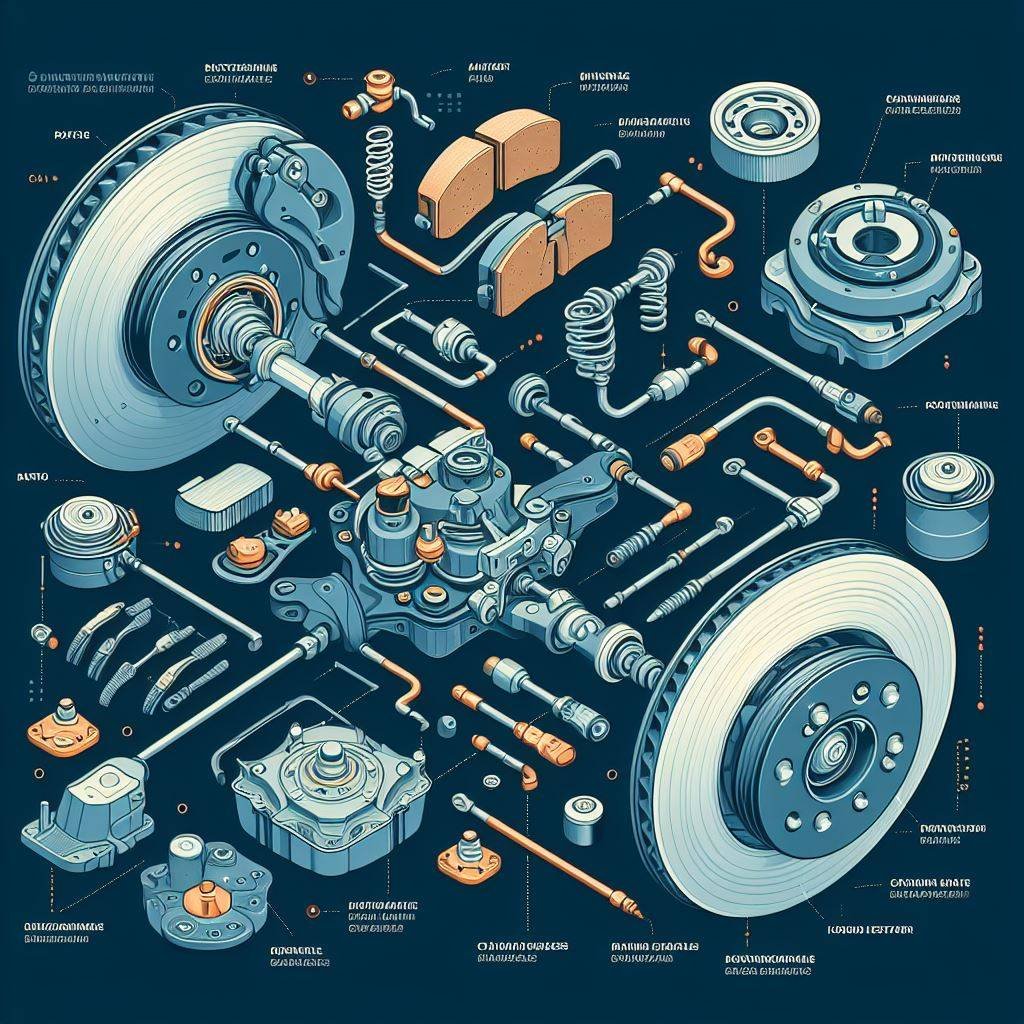Why Does My Car Shake When Braking in the United States? Solving the Mystery
Driving down the roads of the United States is an experience that many cherish, but a car shaking when braking can quickly turn that joyride into a bumpy ordeal. This unsettling sensation is more than just an inconvenience; it’s often an indication of underlying issues within your vehicle. In this article, we’ll explore the various reasons why your car might shudder when you hit the brakes, providing insights to help you understand and resolve the problem, no matter where you are in the United States.

1. Warped Brake Rotors: The Usual Suspect
One of the most frequent causes of your car shaking during braking is warped brake rotors. Brake rotors, also known as brake discs, play a vital role in your vehicle’s braking system. Over time, these rotors can wear unevenly, resulting in warping. When you apply the brakes, the brake pads make uneven contact with the rotors, leading to vibrations that you can feel through the steering wheel.
2. Worn Brake Pads: The Friction Factor
Worn-out brake pads are another common culprit. When your brake pads become thin or worn, they struggle to grip the rotors effectively, reducing braking efficiency and causing vibrations. Regular maintenance and timely replacement of brake pads can prevent this issue.
3. Tire-Related Factors: Balance and Alignment
Sometimes, the issue may not be rooted in your brake system at all. Tire-related problems, such as unbalanced or misaligned wheels, can also result in your car shaking when you brake. Imbalanced or misaligned tires can lead to uneven tire wear and vibrations during braking. Regular tire maintenance, including balancing and alignment checks, is vital to preventing this problem.
4. Suspension Problems: An Uncommon Culprit
Less frequently, suspension issues can be the source of the shaking sensation. Worn-out or damaged suspension components, like struts or shock absorbers, can allow excessive wheel movement during braking, resulting in vibrations and an uncomfortable ride.
5. ABS System and Brake Fluid: Technical Factors
In some cases, problems with the ABS (Anti-lock Braking System) can lead to shaking when braking. Issues with ABS sensors or low brake fluid levels can disrupt the system’s operation, causing unusual sensations when applying the brakes. Regular checks of brake fluid and maintenance of the ABS system are essential to avoid these issues.
Resolving the Issue: Seeking Professional Assistance
If your car shakes when braking in the United States, it’s essential not to ignore the problem. Prompt diagnosis and repairs can prevent further damage and ensure your safety on American roads. It’s advisable to consult a qualified mechanic or auto technician to inspect your braking system and identify the root cause of the issue. With the right expertise and maintenance, you can enjoy a smooth and secure driving experience, free from the unsettling shake when you hit the brakes.
In conclusion, the reasons for your car shaking when braking can vary, but most often, it’s related to brake rotor or pad issues. Regular maintenance, timely brake pad replacement, and professional inspections are key to ensuring your brakes remain in optimal condition, providing you with a smooth and secure ride on the roads of the United States.